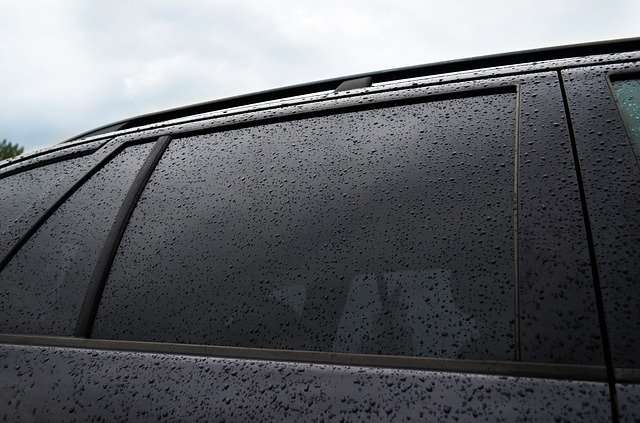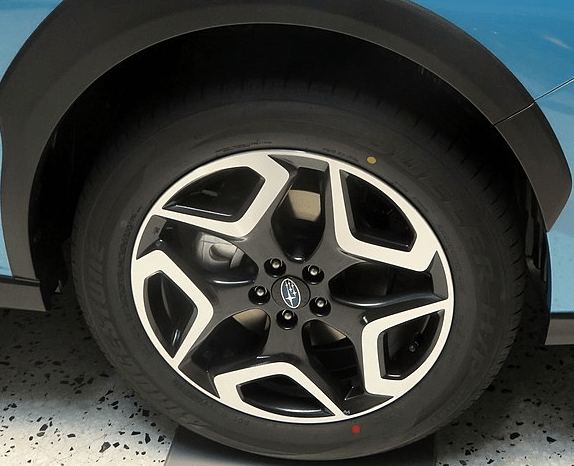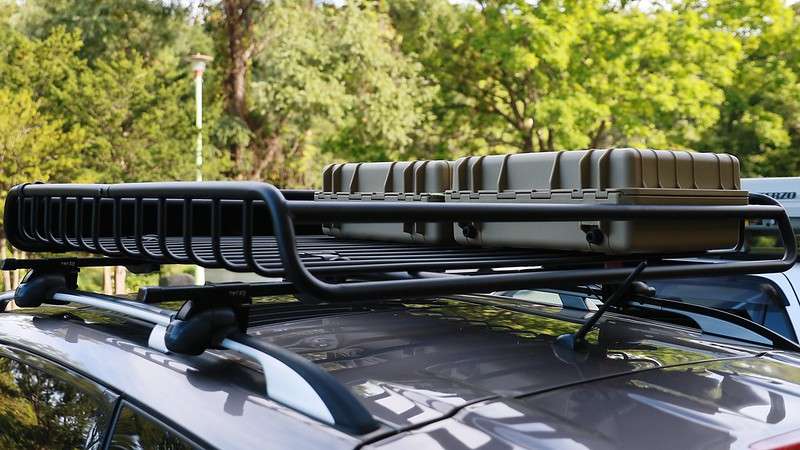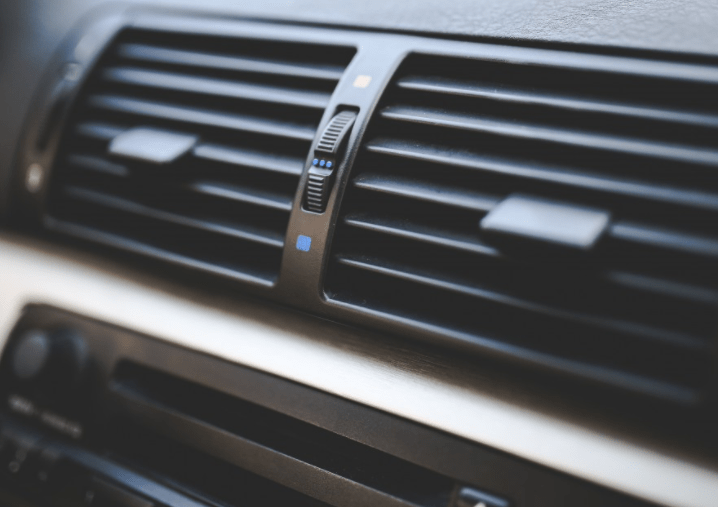Its true that insurers consider various aspects of the vehicle before providing cover and there are some car modifications affecting insurance.
Most insurance providers adjust the premiums based on the risk involved. Whereby the performance modifications attract higher premiums. However, car body modifications like paint-work attract lower premiums.
Most modifications have an impact on insurance premiums and this shouldn’t be overlooked. Any change of the car’s factory specifications can adjust your insurance premium. For example, body-kits, modified ride height, or installing turbochargers.
Awareness of how modifications affect insurance premiums helps in you to make the right decision. Further, declaring the modifications to your insurer ensures that you’re covered fully.
Because the insurance coverage will show the modified nature of your car.
What are the three types of car modification?
The manufacturers make the vehicle to incorporate the necessary inputs for functionality and performance. Therefore, you buy a car that has everything catered for.
Furthermore, automotive manufacturers ensure that the car is attractive enough to the buyer by taking care of the aesthetics. Those three make up the major types of car modifications; aesthetics, performance and functional modifications.
a]. Performance modifications.
Enhancing the vehicle’s performance capabilities will require some installations that alter its components. Performance adjustments will affect the following areas; engine, suspension, brakes, exhaust system, and aerodynamics.
This undertaking will affect speed power, acceleration, handling and the general driving experience. Car enthusiasts, racers and people looking to change their ride experience love performance modifications.
b]. Functional modifications.
Functional modifications aim at improving a car’s practicality, convenience, and functionality. They affect the car’s utility, comfort, and usability. For example; installing interior accessories.
Vehicle owners have certain requirements that their car’s should deliver. Therefore, undertaking functional modifications adds features and capabilities that meet individual needs.
The impact on insurance cover premiums is not very significant in comparison to the other two types of modifications. However, declaring them to the insurer will ensure total coverage.
c]. Aesthetic modifications.
These modifications have no impact on the car’s functionality and performance. Their goal is to alter the car’s appearance and visual appeal.
Aesthetic modifications affect the car’s interior and exterior. Their main effect is to personalize the vehicle according to the owner’s taste.
They are inclusive of; vehicle lighting modifications, interior customizations, styling and exterior body-work. The aesthetic modifications directly affect insurance premiums when they alter a car’s safety features.
Does car modifications affect insurance?
Yes, car modifications affect insurance coverage and premiums. The Insurance company views vehicle modifications as an increase in risk hence affecting the insurance cost.
Not all modifications will necessarily result in higher insurance costs. An insurance company assigns a risk score based on factors like:
- Will the modification raise the risk of theft by attracting thieves?
- Does the modification increase the risk of an accident? For example, turbochargers show aggressive driving behavior.
- If the modification increases the car’s value by making it expensive to repair or replace.
a]. How tinted windows can affect car insurance costs.

We’ve all seen or been in a car that has tinted windows. Well some cars have window tinting when you purchase them. That tint is up to a certain percentage that abides with the laws and regulations that are in place.
Therefore, the insurance coverage has to consider this when determining your car insurance costs. However, installing aftermarket window film will attract an adjustment on the insurance premiums.
That’s because of the impact that this window modifications has on visibility, safety, and the increased risk of theft. Additionally, insurance coverage has to take legal considerations of installing dark window tinting.
b]. The effect of installing larger wheels or rims on car insurance rates.

Your car insurance rate will change when you modify the factory installed wheels. Aftermarket wheels look much more attractive and car owners install them to personalize their rides.
According to insurers, tire upgrades and larger wheels or rims can be more expensive to repair or replace. for example, if they’re damaged in the case of tire bulges.
Further, insurance companies view installing rims during wheel modifications increases the risk of theft. Because they are attractive and they have a high market value.
Some insurance companies have specific policy guidelines in relation to aftermarket modifications. However, others may consider them differently from one car to another.
Does changing wheels affect insurance?
Yes, changing wheels affects insurance coverage. Because insurance companies have concerns about the effect this has on safety, risk of theft and repair costs.
Further, wheel modifications will have a direct impact on the car’s specifications. This is one of the major reasons why insurance coverage changes because of different car modifications.
c]. How modifications to the car’s interior affect insurance costs.

There are several interior modifications that you can undertake to improve your car’s functional properties. For example, dashboard modifications, seats among others.
The car insurance cost is affected by aftermarket interior modifications based on the insurance provider and the extent of the modifications.
In this case, it is important to consult your insurance provider to find out how your modified vehicle interior affects insurance coverage.
Interior upgrades usually increase the vehicles value. Hence the importance of mentioning them in your declaration to ensure you’re fully covered.
d]. Roof rack.

Did you know that adding a permanent or temporary roof rack counts as a modification. Insurers will push premiums up by up to 8% if you undertake this modification. But the increase varies from one insurer to the other.
e]. Air Conditioning.

Insurers want to calculate the cost of everything they are supposed to cover. So, this shouldn’t surprise you that adding an air conditioner to your car will increase the premiums you will pay. In fact, some insurers will increase their premiums by up to 13%.
f]. Adding a backup camera or parking sensors.
There are cases where a modification has positive car insurance implications. Meaning that they may attract discounts on insurance charges. This is in relation to whether those modifications reduce risk of theft and accidents.
Installing aftermarket safety features like car sensors is one of such cases where you might get a discount on insurance premiums. Parking sensors and backup cameras reduce the risk of bumping into obstructing objects when backing into and out of parking spaces.
Other vehicle assistance systems that can attract discounts include lane departure warning systems, adaptive headlights and anti-theft devices among others. Therefore, ensure that your insurance coverage agreement mentions such mods.
One of the car modifications that affect insurance by usually decreasing premiums is the installation of parking sensors. Because parking sensors have the positive effect of reducing chances of an accident. Insurers will usually reduce premiums by up to 13%.
Do parking sensors count as modifications?
The insurance company usually covers your car’s factory features. Therefore, if your vehicle had no parking sensors when it left the factory floor, they do count as modifications.
How much does parking sensors add to insurance?
Because parking sensors have the positive effect of reducing chances of an accident. Insurers will usually offer a discount of up to 13% on insurance premiums.
g]. Tow Bar.

This is another car modification that affects insurance positively by reducing premiums. According to insurers, a tow bar usually slows the vehicle down. Because of this reduction in speed, the insurers feel that you are less likely to get into an accident.
h]. Custom paint or decals.
Vehicle appearance modifications include the use of paint-work to attain the effect of a personalized vehicle. The different types of car paint-jobs have varying custom paint costs.
Insurance companies take into consideration the car paint job repair costs to assess their value and insurance coverage needs. Most cosmetic modifications have an impact on the vehicle’s value.
Therefore, it’s important to provide an appraisal of the custom paint or decals to your insurance companies. This helps them to allocate the cover you need.
i]. The impact of adding body kits on car insurance rates.
Vehicle body kits affect the appearance and style of a vehicle. A modified vehicle appearance that is visually appealing increases the risk of theft hence affecting the car insurance rates.
The car body modifications also affect the repair costs incase of damage. Therefore, ensure that your insurance coverage shows the aftermarket modifications that you’ve installed.
Make sure that you consult your insurance company to find out their guidelines towards the type of body kits you intend to install.
Do body kits affect insurance?
Yes, body kits have an effect on the insurance costs. Declaring these body kit installations is essential for you to receive compensation when you need it.
Insurance company considerations when you install body kits includes the level at which the body kit increases risks. The higher the risk, the more the car insurance costs.
Therefore, insurers offer a standard cover whose insurance coverage is for factory installations. Undertaking body kit mods while under this insurance cover attracts a 10% to 15% increase in car insurance costs.
Alternatively, the insurers offer a modified car insurance policy whose premiums don’t change after body kit installations.
j]. Installing aftermarket exhaust systems.
Aftermarket exhaust systems are part of the performance modifications category. Therefore, the general assumption is that they will bring about an increase in the car insurance rates.
Insurance premiums will change when you undertake this vehicle modification according to guidelines from your insurance provider. Most insurance companies perceive that modified exhaust pipes will encourage aggressive driving behavior.
Which also increases the risk of road accidents. Additionally, they are concerned about the effect how these aftermarket parts impact exhaust emissions. That’s in relation to legal compliance of aftermarket exhaust systems.
Therefore, in order to discourage their installations, they increase the insurance premiums. However, it is important to adhere to legal stipulations concerning all aftermarket parts.
How much does an exhaust add to insurance?
Insurance companies reimburse you if you have fixed a problem that you had with your car. However, you will receive no compensation on anything that wasn’t mentioned in your insurance coverage.
Therefore, declaring any mods will attract a change in the car insurance costs. Including an exhaust system modification. Because the car is covered based on how it left the factory.
Exhaust system mods attract a higher premium that needs to be paid for you to be compensated in case something goes wrong. They usually attract a 2% to 5% increase in premiums. But this depends on the insurance company.
k] The effect of vehicle’s lighting on insurance costs.
There are different types of vehicle lighting modifications and not all of them affect car insurance costs. However, there are other lighting modifications that can attract discounts on insurance premiums.
Insurance companies must ensure that your aftermarket lights installations adhere to government regulations before they offer insurance coverage.
Improving your car headlights by using LED lights and more advanced bulbs like HID lights improves visibility when driving at night. Therefore, according to insurance companies, such a modification reduces risk.
Therefore declaring that you have installed such mods puts you at an advantage within your insurance coverage. Whereby, the insurance companies offer discounts on your car insurance charges.
L]. The effect of modifying the car’s braking system on insurance premiums.
Brake system modifications like powder coating calipers will have no effect on your car insurance costs. However, there are other brake system mods that reduce the car insurance premiums. For example, the installation of performance brakes.
Insurers view aftermarket brake systems as a means of enhancing safety while reducing risks. Therefore, declaring your upgraded brakes to the insurance companies might just prove to be beneficial.
Make sure that you have a proof of professional installation to validate the brake system modifications. Insurers need this to ascertain that those upgraded brakes work properly before including them in your insurance coverage.
M]. Insurance considerations when installing a lift kit or leveling kit.
There are different methods of increasing vehicle ground clearance and each one of them has an impact on the vehicle’s aesthetics, ride quality and handling. Leveling kits are common off-road modifications.
Insurance rates cover the manufacturer’s specifications and declaring any change on those specifications is a must. Because those changes will receive no compensation incase something happens.
There are different types of lift kits that alter the vehicle’s height. Car insurance considerations towards the leveling kit include risks from how significantly high the car is in comparison to the manufacturer’s specs.
Because manufacturers have an allowance recommendation of changing the car ground clearance. Therefore, according to the car insurance considerations, going past those recommendations adds risk.
This also applies to aftermarket suspension system upgrades. However, the consequences of suspension upgrades may vary depending on whether they lead to risk addition or reduction.
N]. A turbocharger or supercharger.
They’re both performance modifications whose effect is an increase in the car’s engine power output. Supercharger and turbocharger technology is considered by insurance companies when setting insurance premiums in different situations.
For example, if they’re installed by the car manufacturer during production or you’re using an aftermarket turbo. Whichever the case, insurers consider such forced induction modifications to increase chances of accidents and aggressive driving behavior.
A supercharger and turbocharger installation isn’t cheap. Therefore, it increases the value of the car. This has to be amongst the car insurance considerations that determine insurance costs.
Additionally, the replacement and repair of the forced induction modifications isn’t cheap. This also affects the insurance premiums.
What modifications do you have to declare?
Insurance providers require you to declare specific modifications in order for them to offer you the best insurance policy. However, the requirements of declaration vary from one insurer to the other.
Finding out the modifications you have to declare helps to avoid issues during an insurance claim. Consult your insurer to get specific guidelines and instructions on the modifications you need to be declare.
Because this also varies depending on your specific insurance policy. However, the general knowledge states that you should declare the following modifications because they impact car value and risk.
- Car body modifications.
- Engine modifications.
- Suspension system modifications.
- Modifications on the vehicle’s Lighting.
- Paintwork and decals.
- Wheels and tires modifications.
- Interior car modifications.
Are factory fitted options classified as modifications?
Factory fitted options are not classified as modifications.
Modifications are changes made to the car after it has left the factory floor. The modifications could take place at the dealership level or at the owner’s level.
Application of aftermarket components and features during modification changes the original equipment manufacturer’s vehicle set-up. The goal of modifying a car is to personalize it to fit your needs. Therefore, you can undertake them at different levels.
Those levels include performance, aesthetics and functional level. Manufacturers already set-up these different levels in the car before it leaves the manufacturer floor.
What is factory fitted options?
Factory fitted options are features that are installed by the vehicle manufacturer during the production process. Those components are part of the original specifications of the vehicle.
Manufacturers usually include the factory fitted options in the vehicle’s standard configuration. Therefore, any other installations are considered as aftermarket modifications.
How much do modifications add to insurance?
There are several factors that determine how much modifications add to car insurance costs. Therefore giving a specific figure will not be possible.
However, those factors that determine how much modifications add to insurance are inclusive of the following;
- The insurance company.
- Type of insurance policy.
- The vehicle under insurance coverage.
- Value of modifications.
- Risk assessment.
- Professional installation to ensure proper operations.
Do aftermarket parts affect insurance?
There is the factor of aftermarket parts when it comes to car modification. Aftermarket car parts is such a broad subject that can’t be explored exhaustively within this article. But some of these modifications affect car insurance premiums positively (reduction) or negatively (increase).
Due to the expensive nature of the aftermarket parts wouldn’t it be really good for you to get extra cover? Insurance companies consider the amount you need for them to return your car to the original state. That also depends on what you’re covered for.
Car modifications that don’t affect insurance.
Seems like modifications affect car insurance premiums either by lowering or increasing them. Usually, the insurance company considers the value of the vehicle. Meaning that a more expensive car will have a higher insurance premium. Further, it means any car modification that increases value also increases the insurance premiums.
After Insurers assess your vehicle’s value, they check whether any modifications that you have undertaken increase risk. They check whether the modification is fitted properly. Additionally, they ensure that the modification doesn’t increase risk of accidents.
Alternatively there are modifications that will increase the car’s safety standards. For example car sensors. These car customizations will lead to a reduction in insurance premiums. But this entirely depends on the car insurance cover provider. Hence the reason why it’s important to talk to your insurer when undertaking any modification. Other types of car modifications that won’t affect insurance premiums are inclusive of;
- Steering wheel lock.
- Dash camera.
- Catalytic converter cages.
- Alarms and immobilizers.
- Tracking devices.
- Parking sensors.
- Advanced driver assistance systems.
Does lowering a car increase insurance?
Vehicle height adjustment is a major issue to car insurance cover providers. According to these companies, the adjustment in vehicle height will be a risk addition factor. It puts the vehicle in the risk of steering problems, making it hard to clear road obstacles and steering problems.
Alternatively, a lowered car stands the advantage of higher fuel mileage and better aerodynamics. Further the vehicle’s risk of rolling over usually decreases.
Lowering the vehicle is usually taken as a method of improving aesthetics. It involves the replacement of suspension springs and the inclusion of aftermarket suspension kits. Vehicle height adjustment will involve bending leaf springs, shortening coil springs or adjusting the torsion bar key.
Ensure that you check the car insurance company’s exclusion policy. This will include all the things that won’t be covered by the policy. Check the “racing parts” exclusion to understand which parts won’t be covered. The car insurance company won’t pay for those damages. Further, consider whether the insurance will cover the full value or just a percentage of the damages
Does color change affect insurance?
Due to the varying prices of vehicle paint jobs, it easy to assume that a car’s color affects the insurance premiums. Though this isn’t a direct consideration, because there are a number of other things that are involved in the valuation. For example, how old the vehicle is, make, model, year, Engine CC size and risk among others. For that reason, the color of the car doesn’t affect insurance rates.

